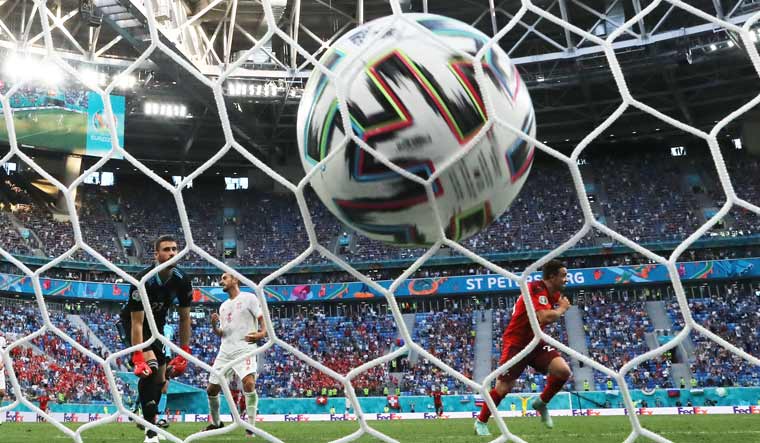The Spanish team of the 2012 Euro is considered to be one of the most dominant sides in the history of the European Championship. Barring the opening draw against Italy—whom they would eventually crush in the final—the Spaniards made opponents look like Sunday league players. It completed a run of three successful international tournaments (2008 Euro and 2010 World Cup), something never done before by a European nation. From that dizzying high, Spain plummeted back to earth by going three tournaments without winning a knockout game.
Entering the 2020 Euro, expectations were low. For the first time in several decades, Spain did not have a player worthy enough to be the face, or the icon, of the team. The unfit Sergio Ramos had been dropped, current captain Sergio Busquets is a behind-the-scenes workhorse, “number one” goalkeeper David de Gea is in the worst phase of his career, and the unreliable Alvaro Morata is their best striker. Compare this to the 2012 team of Iker Casillas, Ramos, Xavi, Andres Iniesta and Fernando Torres, among others.
And yet, here they are, in the semifinal of the tournament, up against a resurgent Italian side. Spain’s run to the last four has had contrasting results—three games that ended with scores level in regular time and two games in which they scored five goals each. They certainly do not look like the best team in the tournament, and the only formidable side they faced was Croatia, against whom they scored five and conceded three.
But if the Spain team of 2012 was chock-full of superstars, this side has youngsters coming of age. Midfielders Pedri and Dani Olmo, defender Pau Torres and attackers Ferran Torres and Mikel Oyarzabal—even goalkeeper Unai Simon to some extent—are finding their feet in the national side, ushering in a new era for the country with brilliant cameos off the bench or consistent first-team performances.
Busquets and Jordi Alba are the two remaining members of that 2012 team and still continue to be vital to this team. The change in Spain’s approach to their game since 2012 cannot be more evident. While Vicente del Bosque deployed the team most of the time without a striker, Luis Enrique prefers having a target man, even if it means fielding the prodigy-turned-underachiever Morata. Gerard Moreno seems like the better option, but Enrique, like many club coaches, still believes in Morata’s abilities.
But the major difference between Spain’s 2008-2012 golden generation and this team is that Enrique demands a more “vertical” approach. The old side was famously (or notoriously) possession-obsessed, metronomically passing the ball around until the slightest hint of a lapse in concentration from the opponents was punished with a killer forward pass.
While Enrique is also primarily a possession-based coach from the Barcelona school of pass masters, he is trying things differently, like how he did with his Champions League-winning Barcelona team in 2015. Enrique demands his players to be more “vertical”, meaning more frequent forward passes, or playing it down the wings rather than centrally, more long passes than usual and a dynamism in counterattacking.
Strangely, the gameplan seems to once again reflect the successful tactics deployed by the same coach that inspired Spain’s earlier generation—Pep Guardiola.
The Spanish possession revolution in the late 2000s was modelled on Guardiola’s hugely successful tiki-taka football at Barcelona. This time, with Spanish clubs struggling to make their mark in Europe—due to myriad reasons—Guardiola’s Manchester City now seems to be the standard. City’s pulsating attacking style while hogging the ball has made them the best team in Europe, and though Enrique has long been a proponent of this style of play, it is no coincidence that Spain’s successes reflect a Guardiola team of its time. It proves that Guardiola is a tactician who understands what works best in every generation to stand apart and set the tone for dominance.
Spain will always have a running supply of talented players. Until 2008, when they shed the underachievers tag of never having progressed past a quarterfinal, Spain were the chokers who never lived up to their potential. Luis Aragones changed that, proving how important tactics are to derive the best out of the nation’s wealth. With youngsters coming through under a coach who seeks to inspire change, things might finally be looking up for the national team.





